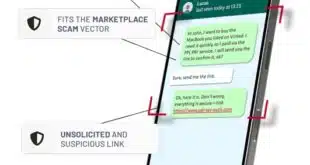Mobile-payments processor Obopay Inc.'s recent agreement to provide services for a handset-based remittance product from MasterCard Worldwide (Digital Transactions News, June 19) is part of a wider strategy at Obopay to develop services in a variety of payment markets, including prepaid top-up, payroll, and benefits payments as well as remittances, a top executive at the company says. Indeed, by year's end the 3-year-old, Redwood City, Calif.-based processor plans to have a service live that will support remittances between the U.S. and India, where in March it introduced its person-to-person payment product. The strategy emerges as Obopay faces increasing competition in the market for person-to-person payments on mobile phones. Players ranging from startups to PayPal Inc. have entered the business. “To get more customers using Obopay and to get the ones we already have to use it more, we are exploring how companies can use Obopay to do disbursements, pay employees, and various [other] niches,” says Gregory Holmes, a former First Data Corp. executive who in April took over as president of Obopay U.S. “One of the things Obopay is looking at is a much broader set of use cases,” says Robert B. Hedges, managing partner at Mercatus LLC, a Boston-based consulting firm that has worked with Obopay on finding partnerships in the various payment niches. MasterCard was one of the first of these partnerships. In this deal, which is expected to begin testing later this year and become a commercial product in 2009, Obopay will provide a front-end interface for mobile person-to-person payments handled by the card network's MoneySend remittance system. Holmes stops short of saying the agreement with MasterCard is exclusive with respect to payment networks, though he says, “We have chosen our payment card partner. We did want a strategic partnership in this space.” Obopay also works with Citigroup Inc.'s Citibank unit to support a mobile-payments service for Citi customers. And, in another effort to build usage, Obopay recently changed its systems to allow its users to send money directly from their checking accounts to recipients' bank accounts (Digital Transactions News, April 2). Holmes says the remittance service is the nearest-term launch, with India “as our first corridor.” Products for the other markets “are more at the drawing-board stage,” he says. Finding more partners, he adds, may not be too difficult, given the intense interest financial-services firms have in mobile payments. “Mobile payments is a very strategic area, so we get a lot of interest,” he says. Some of that interest may stem from a growing perception by banks, networks, and mobile carriers that consumers are or soon will be receiving increasing sums of money on their cell phones and will be demanding ways of accessing that value. Though recent research has suggested consumer indifference toward at least some mobile-payments services, Hedges says that will change as value builds up on consumers' handsets. By introducing services, such as remittances, top-ups, and payroll, that create consumer demand that networks will have to fulfill, Obopay could ignite interest in broader applications. “It will set up the problem of getting money off the phones,” Hedges says. “They haven't yet had to solve [this problem] because there aren't that many people with cash on their phones. Once people have money on their phones, they'll look for ways to transact, but they're not running around saying, 'I want cash on my phone.'” If that happens, Obopay may draw nearer to its new president's ambitious goal. “Our vision is to transform every cell phone in the U.S. into a payment instrument,” Holmes notes.
Check Also
A ThreatMark Tool Gives Consumers a Role in Identifying Scams
As scams and fraud continue to wreak havoc on consumers and financial services companies, one …




